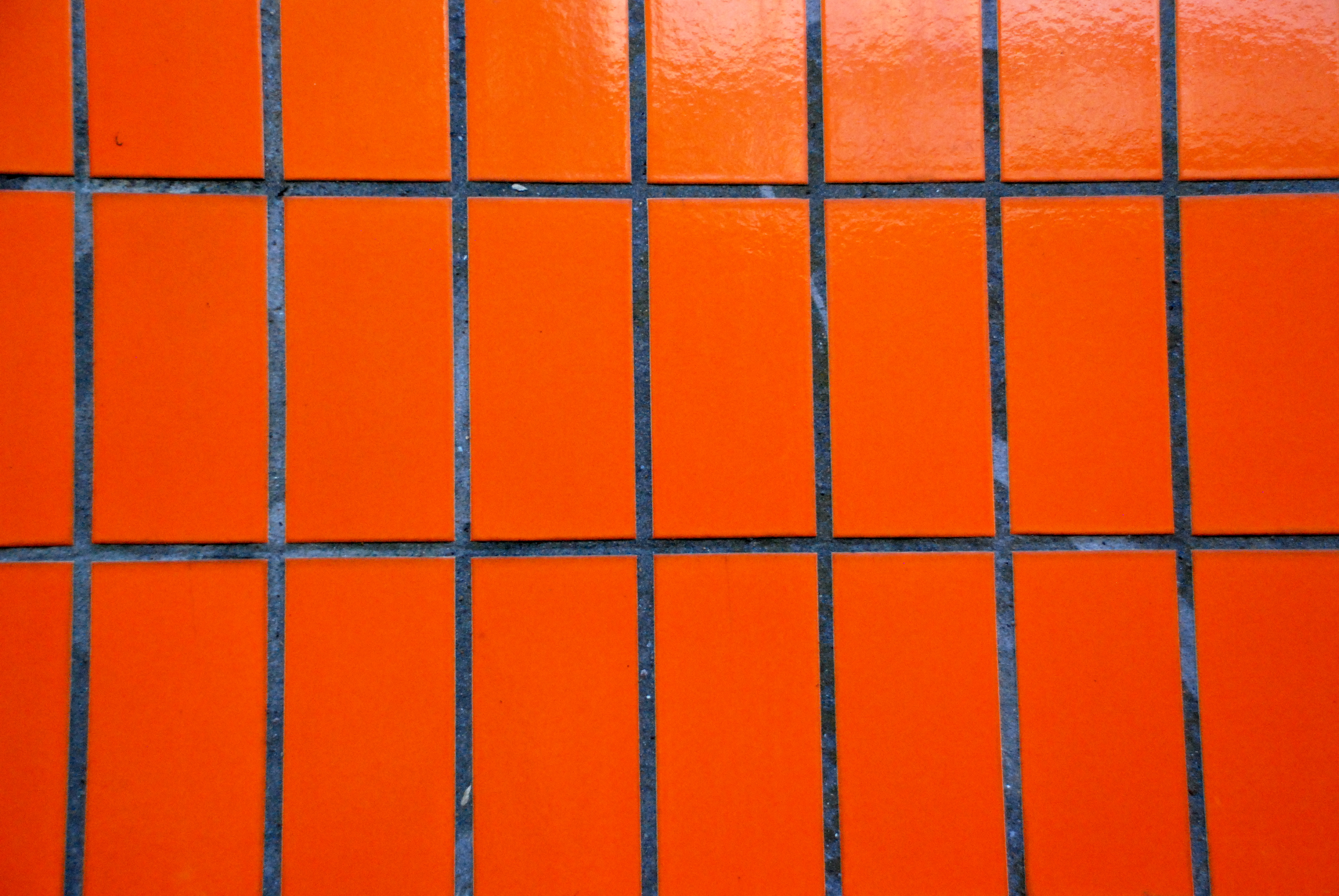Tile is a beautiful and easy-to-maintain type of finishing of flat surfaces (walls, floors) in any premises, especially suitable for a humid environment. One of the main disadvantages of tiles is the need to lay each element separately, which takes time and creates space between the tiles. To get a presentable surface, you need to align the joint seams by filling them with a special material. Most often, grout is used: it solves a decorative problem, makes it impossible for anything to get into the joints between the tiles and into the space between the tile and the underlying surface. Fugu (grout) is chosen taking into account the conditions of use, as well as taking into account the aesthetic component.
Content
How tile grout works

Regardless of the manufacturer, composition, presence or absence of additional additives, the essence remains the same: the mixture fills the gaps between adjacent blocks. In this way, you can achieve several goals at once:
- make it impossible for moisture and dirt to enter the tile joints;
- prevent mold growth (when using appropriate grout);
- strengthen the masonry;
- improve the appearance;
- simplify surface cleaning.
In order to achieve all goals, the correct application of the fugue is important. There are differences in the application technique depending on the type, composition, manufacturer.
Specifications
The main distinguishing feature of most types of tile fugues on the market is the composition. The choice also depends on the width of the joint between adjacent tiles, which affects the selection of a suitable viscosity. Sometimes the color of the mixture plays a decisive role: some types are sold colored or dyes may be added to them. Others will not change their color in any way - usually these are gray shades.
Most often, inexpensive and easy-to-use cement ones are sold: dry powder with additional additives from plasticizing and mineral compounds; it will be enough to add water in the specified proportion.
Liquid synthetic joints are more expensive but will work well for wide vertical seams. Sometimes sold ready-to-use or requiring additional addition of hardener.
Types of grout
Here are the 5 most common types.
Cement
This includes conventional cement, cement-polymer and cement-sand mortars. Simple cement is used with a joint size of up to 5 millimeters, with the addition of mineral components - up to 15 mm.
Advantages:
- high strength;
- ease of use;
- long solidification;
- the possibility of restoration when cracking due to drying;
- cheapness.
Disadvantages:
- slightly absorb moisture;
- small variety of colors;
- slight decrease on drying;
- long solidification.
This type is very undesirable to use in rooms with high humidity. The porous structure will accumulate water on the surface, which can cause the fugue to break down and mold growth. It is possible to add antifungal mixtures and latex sealant to avoid this problem.
Epoxy
A mixture of their two components: a chemically cured resin and a sealant consisting of fine mineral fractions. The color of the fugue depends on the color of the added sand or other fine-grained mixture.
"Epoxy" quickly hardens after application, and its properties become similar to plastic: the smooth surface does not crumble and does not allow water to pass through. Excellent for grouting after cladding in damp rooms or places that are often in contact with water. It is even used for grouting swimming pools.
Advantages:
- complete waterproofness;
- elasticity before hardening;
- smooth surface without pores;
- resistance to temperature extremes (depends on the manufacturer, usually withstands from -15 to + 100 ° С);
- lack of tendency to fade;
- does not crack over time;
- variety of colors and shades.
Disadvantages:
- dries quickly after application;
- when dry, it is difficult to remove from the tile;
- cost.
Epoxy grouts can be used in all conditions. Difficulty can be the need for a quick and accurate application of the mixture: when applied, it quickly hardens and is very difficult to remove after drying. So you can ruin expensive tiles and waste an expensive grout. It is advisable to entrust the application of the epoxy fugue to a professional. It is possible to wipe the cracks on your own, but it would be better to practice before that on a little visible area of the cladding.
Latex
Due to its viscosity and plasticity, latex grout is capable of filling very wide gaps up to 30 mm wide or more. More often it is used not as a separate type, but in combination with cement joints.
Advantages:
- high elasticity;
- resistance to cracking;
- plasticity and toughness, which can be used for wide seams;
- waterproofness;
- the ability to choose a suitable color.
Disadvantages:
- high cost;
- traces of grout on the tiles, if the excess is not removed in time;
- does not tolerate very high temperatures above 80-90 ° C.
Furan
The composition is similar to epoxy, but with admixtures of latex for viscosity or Portland cement for strength. Due to the variety of chemical structure, it can enter into various reactions, therefore, it is extremely undesirable for use in closed residential premises.
Advantages:
- complete water and moisture resistance;
- high density of the finished seam;
- resistance to ultraviolet radiation;
- elasticity;
- wear resistance.
Disadvantages:
- only black;
- chemical activity;
- use only outdoors or in actively ventilated rooms;
- not always available for sale.
Polyurethane
An elastic jointer that is suitable for narrow seams up to 6 mm. It is useful as an addition to ceramic tiles or cladding on a moving surface - the elasticity of the material allows you to damp vibrations and not crack. Easily colored by adding colored sand or other mineral.
Advantages:
- practically does not absorb water;
- suitable for the narrowest and thinnest seams;
- does not need preparation, dilution or thickening;
- dries slowly;
- easily removed from the surface, especially glossy.
Disadvantages:
- dissolves in liquids with chlorine in the composition;
- dries slowly.
Criterias of choice
The choice of a suitable type of fugue depends on the tasks set. Most often, the decision is based on the summary conclusions from the following four tasks that the grout must cope with.
Main objective and conditions
Based on the features of the fugue, depending on the composition, it is almost always possible to choose a suitable one, knowing the working conditions of the surface. So, for a dry section of the wall, which will rarely or with an average frequency to be wiped off, a cement fugue is suitable.
For constant contact with humid air or splashes, latex, polyurethane compounds are better suited.In cases where the tiles will be in the room and are constantly in contact with water (bathroom wall, kitchen apron near the sink, tiles around an indoor pool or directly in the pool itself), it is more correct to choose one that is resistant to the growth of mold and dirt. The best options would be polyurethane and epoxy fugues.
The operating conditions of the tiled coating are also important. For example, a vibrating or deforming surface will require grouting the joints between tiles with a mixture of high elasticity: latex, polyurethane, furan fugues. For laying on a "warm floor", in unheated rooms and for outdoor decoration, temperature resistance of both tiles and grout is required. The same furan, latex, polyurethane are suitable.
Joint size between tiles
On the packaging of the grout, the manufacturer usually indicates the minimum and maximum dimensions of the joint that this type will cope with. For cases where the applicable joint width is not specified:
- up to 5 mm - you will need a plastic composition without mineral additives;
- 5-10 mm - the presence of small grains of sand in the composition will be ideal;
- more than 10 mm - elastic mixtures are needed, preferably with the addition of large fractions of minerals.
Features of ceramics
One of the tasks of grouting is the connection of adjacent slabs, so the choice of a suitable one may depend on the composition and structure of the facing:
- glossy, glazed, richly decorated tiles do not like abrasive mixtures on the "front" surface and next to it. It is better to use fine-grained cement mortars, latex and polyurethane grouts;
- an epoxy fugue for decorative finishing is perfect for small mosaic and glass tiles;
- for ceramics with a volumetric texture or porous surface, it is not recommended to use liquid solutions. It is possible for particles of the mixture to get stuck inside the cavities, so the removal of excess will be difficult. It is more practical to use cement grout with mineral additives - it will be easier to remove, and the likelihood of staining the lining will decrease.
Required color
One of the main tasks of grouting is decorative. It is always possible to change the overall appearance of the cladding, even when the tiles have already been purchased, or even fixed to the surface. With the help of a fugue, you can both simplify the design and make it brighter and more interesting.
It will be easier to leave the choice of color to the designer. If the repair is done without his participation, it is advisable to know 7 basic tips before buying, and, taking them into account, rely on your taste.
- Light shades of the seams between the tiles will help to unite the pattern and visually increase the area.
- Dark colors will emphasize each tile separately, highlight the pattern, pattern, color of the facing element.
- For monochromatic masonry, it is desirable to choose a similar color; you can choose a darker or lighter grout within 1-2 tones. In the presence of decorative inserts, the color of the joint must match the color of the additional panels.
- Transparent grout will be multi-colored facing to the "face" or with a "chameleon" effect - multi-color.
- For flooring, dark shades will be more practical. This will keep the pure appearance and color itself longer.
- Non-standard solutions also work. The opposite, contrasting color will give expressiveness and hold the eye.
- It will be interesting to use multi-colored grouts or with the addition of additional decorative elements. So, a metallized fugue will make the interior more expensive. Such solutions rarely fit into the overall design, you need to be careful with them.
In addition to metallic impurities for decoration, there are mixtures with mother-of-pearl, golden, and silver elements. The fluorescent fugue looks unusual - it gives a faint green glow in the dark.
Additional advice: do not choose a grout blindly and from memory.It is better to have a piece of tile with you, and select the appropriate color for it.
How to choose the right look
- For a bathroom with full ceramic cladding, it would be better to choose an inexpensive, moisture and mold resistant grout. It can be cementitious with minerals or latex.
- In some parts (near sinks, taps, toilet bowls), tiles and seams must also be resistant to detergents. Epoxy mixtures are perfect, two-component is better.
- An epoxy base is needed for mosaic tiles.
- It is better to grind the floor tile covering with epoxy, cement or cement-mineral mixtures of dark shades.
- Grout of the same color and composition is needed for facing stoves and fireplaces.
- A furan mixture or a cement mixture with the addition of latex and antiseptic is more suitable for outdoor decoration.
- The tile covering the heating devices, the "warm floor" system is treated with polyurethane joints. They are also needed for unheated rooms, where a large temperature drop is possible. Vibrating and deforming surfaces are also best rubbed with polyurethane mixtures.
Prices
The cost depends on the composition, decorative additions, manufacturer. The packages differ in weight (volume in the case of solutions). It is difficult to calculate the real expense, so it is better to buy with a small margin.
- Standard weight for cement mixes is 2 kg. Prices for this weight from these manufacturers are 150-250 rubles. The maintenance of mineral supplements will be even more expensive.
- Epoxy compounds start from 1 kg. Price - not less than 1000 rubles. 5- and 10-kilogram buckets are more often sold. For a large, usually the price is from 6 thousand rubles.
- Polyurethane grout costs about the same: from 1000 rubles. per kg.
- Furan grout prices are similar. About 800-1400 p. for 1 kg of the mixture.
- Latex ones are cheaper. 2 kilograms are sold for 400-700 rubles.
Top 5 tile grout manufacturers
Now there are many manufacturers of grout on the market for various purposes. It is easy to buy both domestic and imported mixtures. In 2020, the following manufacturers and models are popular:
Ceresit
A well-known company in the construction and repair circles, part of the Henkel company. Its products are sold in most countries of the world for their quality and reasonable price. It offers various types of joints, usually cement-based, but there are latex and epoxy models.

A mixture of cement with mineral and organic additives for grouting ceramics, glass, stone for horizontal and vertical surfaces. Aquastatic effect prevents water penetration, Silica Active - fungus growth. Suitable for dry and damp rooms, outdoor work. Joint width - up to 10 mm. Sold in packs of 2 and 5 kg. Has a wide palette of colors. The price for 2 kg is about 300 rubles.

A similar mixture without a moisture-proof component. Suitable for narrow joints, but will not tolerate direct water ingress and high humidity. The range of colors is wide. Available in 2 and 5 kg packages. Price - from 150 rubles. for 2 kg.

Ready-made silicone grout, which the manufacturer recommends to use for sealing joints in corners and at joints. Will give elasticity, can be used for seams from 5 to 30 mm wide. Moisture resistant and contains antifungal impregnation. Price for 280 ml - from 300 rubles. This amount can be enough for an area of up to 10 m2.
Mapei
Italian manufacturer of building mixtures. The name is an abbreviation "Materiali Ausiliari Per l'Edilizia e l'Industria", which in translation from Italian into Russian would sound like "auxiliary materials for construction and industry."

Cement mixture for joints from 2 to 20 mm wide. Suitable for outdoor work: it tolerates low and high temperatures well, the differences between them, has good moisture resistance. 2 kg of any color will cost from 200-250 rubles.

Ready-made epoxy mixture for various purposes. The manufacturer recommends using in temperatures ranging from -20 to + 100 ° C. Withstands moisture and chemically active substances well. The estimated consumption will be 0.3-2.4 kg / m2... A package of 5 kg will cost from 2300 rubles.
Litokol
An Italian company that started with the creation and sale of adhesive for tile laying. Now popular in Europe, CIS countries and China.

Epoxy grout for joints 1-15 mm. A wide range of colors, resistance to moisture, chemical compounds, temperature changes. Excess material on the tiles can be removed or corrected within an hour after application. Ideal for small tiles, mosaics and decorative masonry. A wide variety of colors. The price corresponds to the declared quality: for 2.5 kg from 2100 rubles.

One-component cement mixture. Needs preliminary dilution with water (300 ml per 1 kg of dry composition). Suitable for narrow, small slabs: 1-6 in the title - permissible application width in mm. Includes antifungal agent. Withstands up to -50 ° C and direct water ingress. 2 kg - about 300 rubles.
Kerakoll
Another Italian concern for the production of dry and liquid building mixtures. Firmly occupied the shelves of Russian stores. Concerned about the protection of nature and the environment, from the production stage of a product to its entire service life.

A versatile epoxy ready-to-use grout well suited for very damp areas. The two-component composition will prevent the penetration of water and fungus, and also make it impossible for mold to grow on the grout surface. Suitable for both small boards and wide joints: the recommended width is from 1 to 20 mm. Works at temperatures from -40 to + 110 ° C. The price for a bucket from 3 kg starts from 4000 rubles.

Mineral grout for joints up to 8 mm. It is sold dry, therefore for "activation" it is diluted in water in a ratio of 1: 4 (250 ml of water per 1 kg of mixture). It tolerates temperature, humidity, and prevents mold from growing. 2 kg bag - from 600 rubles.
KIILTO
Finnish company that has been producing building materials for 100 years. Known for the quality and reliability of its products.

Cement-based dry mix for narrow joints (up to 6 mm). It remains plastic for a long time (up to 3 hours) and finally dries up within a day. It will not withstand chemicals, but will tolerate humid air and water ingress without problems. The only mixture of the company that is officially sold in Russia. 1 kg is sold from 200 rubles. Packages of 3, 10 and 20 kg are also available.
conclusions
All manufacturers have a similar product price. More often it turns out that well-known firms can slightly raise the cost, but you can overpay for high quality. It is important to choose a tile joint based on real needs, further conditions for its use, decorative goals set, and an acceptable budget.
It will be much easier to entrust the choice and all repairs to professionals, or at least consult with the seller in the store. Craftsmen advise buying a fugue with a tile sample. Before self-grouting, it is advisable to practice in a training area or in an inconspicuous place on the lined surface.
If you have experience using grout, which we talked about in this review, share your opinion about it in the comments.













Advise which grout to choose for a medical center